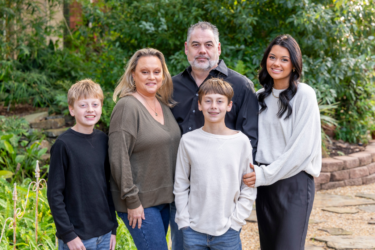After a series of suicides occured on LSU’s campus, the students needed someone they could reach out to for emotional support, and so, THE PHONE, a crisis helpline, was born. Becky Young, LPP the volunteer coordinator at Crisis Intervention Center (CIC), explains, “They knew the students needed someone to talk to, but within just a few months, it was decided that the helpline was something the entire community needed, and Crisis Intervention Center grew.” THE PHONE quickly became a state-wide recognized brand that symbolizes hope and comfort for those in need.
The helpline is now available 24/7 and is open to anyone and everyone, regardless of insurance coverage or socioeconomic status. If you have a crisis, you can reach out to the Center for help and guidance, whether it’s for bullying, thoughts of suicide, anxiety, depression, or anything that is causing you to suffer emotionally. Twelve percent of calls to the Center are related to suicide while the other 88 percent are related to depression, anxiety, LGBT, or elder abuse.
“A crisis is self-defined. What may be a crisis to me, may not be a crisis to you. We receive calls from people who have lost someone and from people who are considering quitting their jobs or leaving their spouses. If it’s a crisis to them, we help them, talk with them, and listen to them,” Young explains. With proper training, volunteers and staff members who are answering the calls typically spend 12-30 minutes on a single call. “While we can’t give our staff and volunteers a script, we do provide them with a model to help them through each call,” she adds.
The Center has been providing services for Louisiana for 40 years. Each year, the Center receives about 24,000 calls. However, if something is going on in the community, or the nation, there can be a spike in calls. The Center will sometimes receive calls from other lines in the country who are experiencing overflow as well. Rick Jackson, LMSW the Center’s Clinical Supervisor, explains, “When Florida was experiencing terrible weather, we had calls coming in from Florida from people who had never been in a hurricane before and were afraid.”
CIC can also be called to meet with anyone in our community who has experienced a traumatic event. Just recently, the Center met with students who were experiencing loss after the flood in 2016. During these sessions, everyone is encouraged to try and open up. “We ask them about their experiences, but ultimately, we want them to share how they feel,” Young says.
Alongside the call center, there is also a texting and chatting service available for online counseling. “Chatting takes much longer because you can’t hear if someone is crying that way,” Jackson shares. While getting help to someone through the computer is slightly trickier, CIC can still provide anything the person might need.
For those who have lost someone to suicide, the Center also provides a Survivors of Suicide support group (SOS), a group that many have said has saved their lives. Jackson shares, “It’s an ongoing, weekly group for people who have lost someone through suicide. Before joining the group, there is an assessment done to make sure that the person joining is ready for a group setting.”
On Saturday, April 14, CIC will be hosting their annual Survivors of Suicide Walk at LSU where they will come together and release balloons for loved ones who they have lost to suicide. They also host a survivor memorial event and have a memorial garden for survivors of suicide loss to remember their loved ones.
However, without the help of its volunteers, a lot of the great work CIC does wouldn’t be possible, and volunteers are always needed. “We hope to expand our volunteer pool and provide even more services,” says Jackson.
CIC trains volunteers three times a year. To get involved, visit them online at cicla.org and fill out an application. Volunteers must be at least 18 years old and able to get to and from the Center. “Volunteers do not need experience or a special skill set, they just have to be willing to listen,” Young shares. ■





